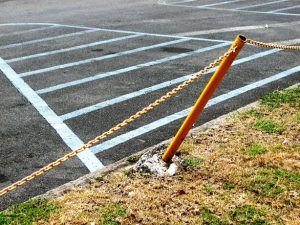Heat Runs as Evidence in Illinois Drug Crime

In a recent Illinois appellate case, the defendant was convicted of unlawful delivery of a controlled substance under 720 ILCS 570/401(a)(1)(D). He appealed on the grounds that the prosecution hadn’t proven beyond a reasonable doubt that he knowingly participated in the drug transaction.
The detective testified that he’d investigated narcotics and money laundering cases in the past. Most of his cases involved surveillance. Often traffickers conduct heat runs to determine if police are watching. A heat run is an effort to take an out-of-the-way route to go to the transaction destination, such as making multiple turns or U-turns and going down back alleys.
On the day in question, the detective found that a prior investigation target was stopped with more than $100,000 on him. The detective went to the address where the car was registered. There they saw a car registered to the defendant at a Texas address. They saw a woman and boy leave the house and drive away to breakfast at a restaurant. When they came back to the address the defendant’s car was gone. It returned in the afternoon, with the defendant driving.
The defendant and the other Hispanic man came back to the car shortly thereafter, and the detective and other officers followed. The defendant made several U-turns, which was consistent with a heat run in the detective’s opinion. They came back and parked a block away, though there was enough parking in front of the address. Later, the defendant and the man came back to their car, and the detectives followed them to a condominium complex. The suspects went inside, and then when they came back to the car, the defendant drove alone while the other man followed in an Impala with a different passenger. They went to Wal-mart. Another man got into the Impala with a black bag and got into a Hyundai.
The detective testified that in his experience drug dealers would use lookouts to watch for police. The detective and another officer stopped the Hyundai and found 8 bricks of heroin in the black bag that had come from the Impala in the Wal-Mart parking lot. A detective testified that the first car following the Impala was consistent with a drug operation and was there to make sure the Impala wasn’t pulled over.
The detective also testified that each of the four men arrested possessed two cell phones, and their contents were analyzed. However, it didn’t show that the defendant had called or texted the people in the Impala.
A different detective followed the defendant’s car after Wal-Mart, and it again fell in line behind the Impala as it drove to a restaurant. This detective learned that a traffic stop of a different vehicle leaving the Wal-Mart had led to 7 kg of heroin being seized. The car was stopped and searched by a police dog. A hidden compartment was found in the car, and the car had been altered to make the compartment so that it wasn’t visible to police. The defendant was arrested.
He was found guilty. The only question was whether he knowingly participated in a drug transaction or was simply present for it. The court decided he was a knowing participant due to the actions that were consistent with a heat run. The other two men were the defendant’s father and brother and the court determined that there was no innocent explanation for the noted behavior. The defendant was sentenced to 20 years in prison, and appealed.
The appellate court explained that a defendant’s intent could be inferred by his actions and the circumstances. In this case, the evidence showed the defendant was acting as a lookout for the drug transaction. It explained that participation in a heat run has been found to be significant evidence of knowing involvement in a drug transaction. The appellate court found that it was hard to imagine a legitimate purpose for driving separate cars to multiple locations, as well as the defendant driving to Wal-Mart and not going in the store, the defendant’s two cell phones, and the hidden compartment in the defendant’s car. The appellate court affirmed the conviction.
You should consult an experienced drug crimes attorney if you are charged with participation in a transaction involving controlled substances. Each case is different, and an experienced attorney can make sure you present the strongest possible defense. James Dimeas is an award-winning Chicago drug crime attorney and author with more than 24 years of experience. If you are charged with a drug crime in Illinois, contact me in Cook (312-229-5500), DuPage and Kane (630-504-2096), or Lake (847-696-6458) County for a free and confidential consultation to discuss your legal options.
More Blog Posts:
Can I Be Guilty of Domestic Battery If I Didn’t Hit Anyone, January 29, 2017
The Kane County Domestic Diversion Program, December 1, 2016
More Blog Posts:
Aggravated Domestic Battery Case Involving a Stabbing in Illinois
Can a Prior Drug Crime Conviction Be Used as Impeachment in an Illinois Domestic Battery Case?


